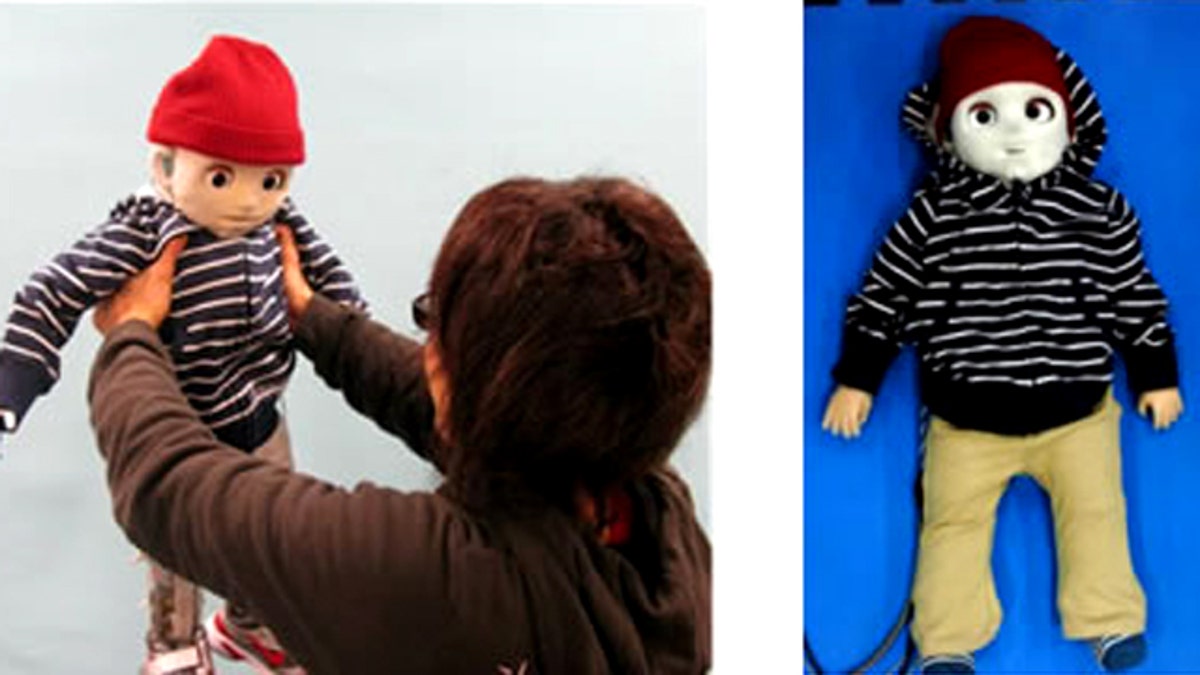
(Science and Technology Agency (JST))
Japanese researchers created a baby robot designed to simulate the behavior and development of a real infant in an effort to better understand how humans grow up.
Named Noby, short for "nine-month-old baby," it has 600 sensors across its body to feel touch, cameras and microphones fitted into its head for vision and hearing and is hooked up to a powerful computer.
Noby is 28 inches tall and weighs 17 pounds, similar to a nine-month-old human. It has soft urethane skin, is flexible and has joints that move like those of a human baby.
Researchers are using it to test theories of human development, said Tokyo University professor Yasuo Kuniyoshi, who led development of Noby with the National Institute of Advanced Industrial Science and Technology.
"You can load your software into the robot, watch how it reacts to human actions and its surroundings and compare it with the behavior of real children," Kuniyoshi told AFP Tuesday.
Researchers could modify their software if the robot acted strangely in order to fine tune its development, he said.
Noby is one of the humanoids created under a broader project headed by Minoru Asada, robotics engineering professor at Osaka University, and funded by the government-backed Japan Science and Technology Agency (JST).
The team is adopting a new approach to getting to know humans by replicating them, JST said in a statement.
"Human beings learn and develop various functions in the process of growing up, but the exact mechanism is yet to be explained," it said.
Shedding light on the field will help develop robots that could live together with humans in the future, it said.
The project team has also unveiled a humanoid the size of a five-year-old, the M3-Kindy -- the M3 stands for "man-made man," and Kindy for kindergarten -- which can walk hand-in-hand with a human.
Noby and M3-Kindy are the latest additions to humanoids created in the project, which also includes the M3-Neony, which mimics a new-born baby and which was unveiled earlier this year.




















